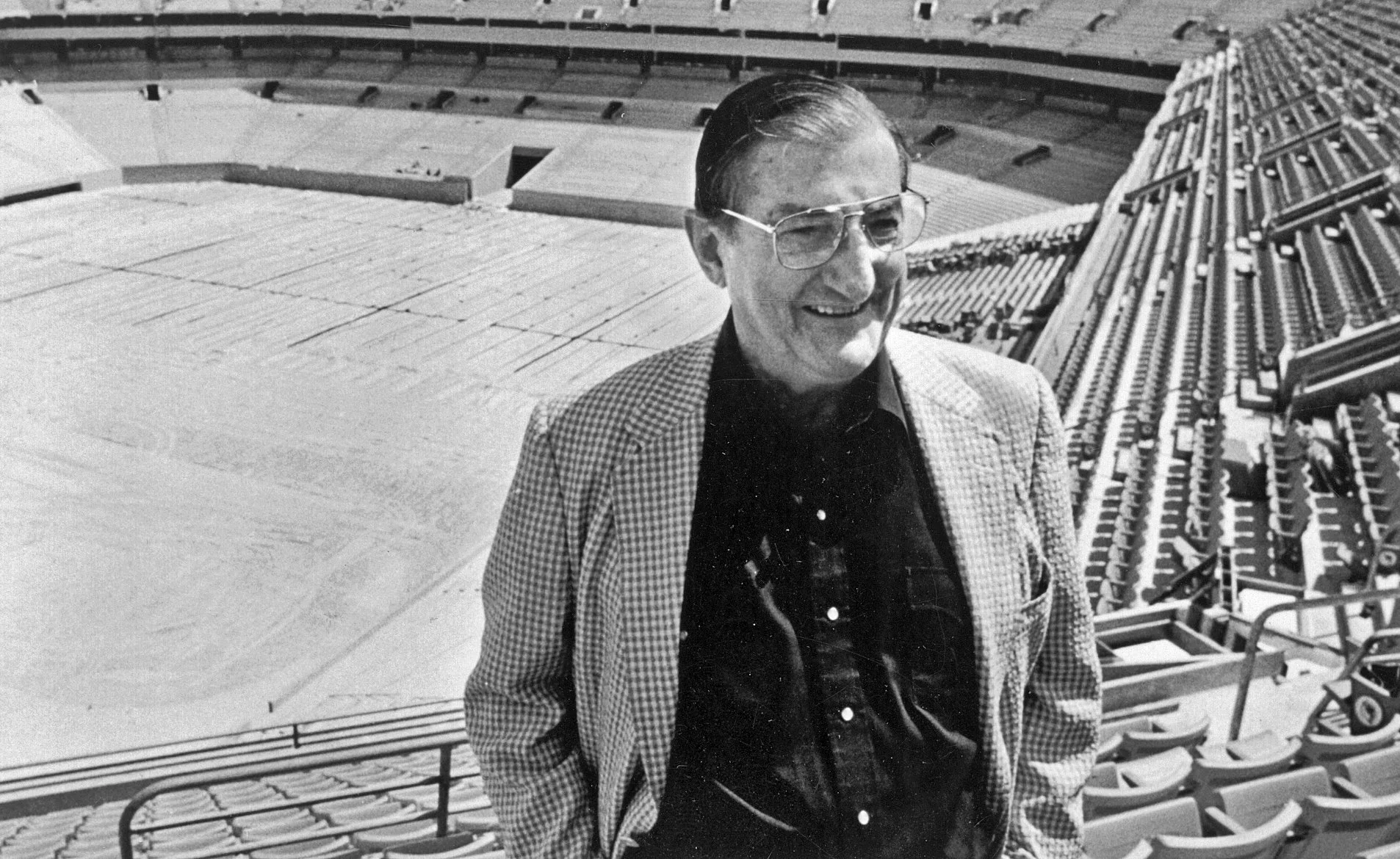Miracle in Miami & The American Dream:
The Untold Story of Joe Robbie and the Miami Dolphins
By Erica Robbie
Photo courtesy of the South Dakota Sports Hall of Fame
The legacy of the Miami Dolphins is the untold story of my family and of my grandfather, Joe Robbie: The son of an impoverished Lebanese immigrant who defied all odds to found the only team in NFL history to play a perfect season—and who forever changed the economics of professional sports—from building the first privately financed stadium in the league to pioneering the suite experience.
As a 2015 Sports Illustrated article states, “Joe Robbie would never get credit for it, but he was one of the smartest men in American sports.”
A wild and compelling narrative that reads like fiction, the story crosses multiple genres and evokes every emotion from triumph to heartbreak in its personification of The American Dream.
Miracle in Miami spans a century, beginning with Robbie’s father, Youssef Arabi, who emigrated to the U.S. from Lebanon with his uncle at age 11. Arriving at Ellis Island in 1900, Youssef Arabi was renamed Joseph Robbie, separated from his uncle, and sent to Canada.
Robbie, Sr., traversed the country alone and eventually reunited with his uncle at a Syrian refugee community in South Dakota. He settled in Sisseton, South Dakota, a small town bordering a Native American reservation, married a second-generation Irish immigrant (whose baked goods later garnered their fame across the Midwest), and started a family.
The couple’s son, Joe Robbie, Jr., loved sports from a young age, and by 14, he was the sports writer for the local newspaper. The first native of his hometown to graduate college, Robbie left law school the day after Pearl Harbor to serve as a Naval officer in World War II. He was awarded a Bronze Star and completed his law degree upon his return. A successful trial lawyer and politician—he ran for governor of South Dakota and a Congressional seat twice in Minnesota—Robbie and his wife, Elizabeth, raised their 11 children in Minneapolis. At age 50, Robbie gambled everything he spent his life building to pursue an unusual opportunity to start an NFL franchise in Florida. A fearless visionary, Robbie relocated the family of 13 to Miami, and in 1966, founded the Miami Dolphins.
With Robbie at the helm and his children in various executive roles, the Miami Dolphins were a uniquely family-run business. Under the Robbie family’s leadership, Miami saw its glory days—which are forever memorialized by the likes of Don Shula and the ’72 perfect team, Larry Csonka and Dan Marino.
Robbie was honored in 1979 with the prestigious Horatio Alger Award, which recognizes Americans who overcame adversity for their “integrity, hard work, perseverance and compassion.”
When it came to business, Robbie himself was a perfectionist. The media portrayed him as heroic and heartless in equal measure. Yet the Robbie patriarch was widely misunderstood, according to his children and those close to him. The perception of a ruthless, hard-drinking tightwad running a football team on a shoestring budget is a superficial snapshot that achingly undermines Robbie’s character. While certainly complex and flawed, Robbie was a brilliant businessman who embodied grit; a philanthropist who championed underserved communities (both pro bono in the courtroom and privately with his wallet); and a loving father who deeply valued family.
Also lesser-known to the layered story are various events, which collectively seem inconceivable, that played out in the background: Robbie’s double life and mistress in Miami; his first son, a doctor, who died jumping off the Golden Gate Bridge; another son’s demise from genius exec to homeless drug addict; a daughter who drowned mysteriously in Mexico; a granddaughter killed by her husband in a murder-suicide.
By the 1980s, Robbie had a new vision: To give his winning team and its fans the Super Bowl-worthy stadium he believed it deserved. The 50-year-old Orange Bowl where the Dolphins played was falling apart, yet the city of Miami rejected Robbie’s pleas to help fund a new stadium. Fiercely loyal to South Florida, rather than shop for a market that would welcome the Dolphins and a new stadium, Robbie single-handedly sought and secured financing to build one.
Once again, Robbie risked everything he built—this time at age 70.
A master salesman and rebel among NFL owners, Robbie clinched the 1989 Super Bowl at the stadium before site plans were approved. But Robbie’s tragic, sudden death three years after the stadium opened robbed him of ever realizing its success. The devastating loss of the Miami Dolphins and Joe Robbie Stadium led to an ugly, highly publicized courtroom battle that tore the family apart.
This catastrophic ending—the total collapse of an NFL empire and a family—is in stark contrast to the astounding and inspirational immigrant success stories behind Youssef Arabi, Joe Robbie and the Miami Dolphins.
